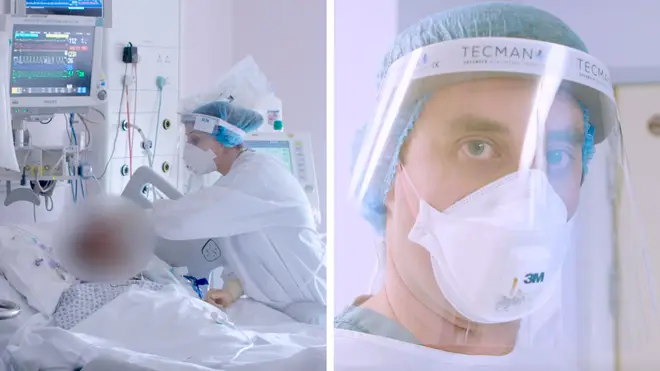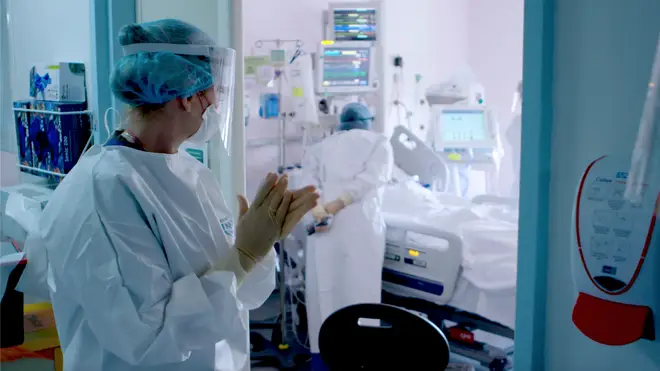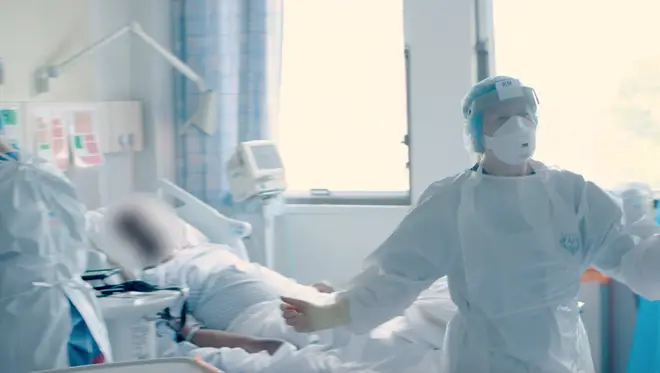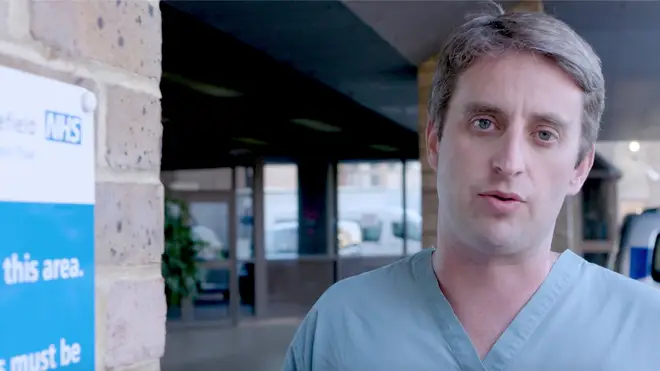
Oli Dugmore 4am - 7am
19 May 2020, 07:49 | Updated: 7 June 2023, 08:56

LBC goes inside an Intensive Care Unit during coronavirus crisis
Theo Usherwood visited an Intensive Care Unit to see the work coronavirus doctors are doing to save lives.
Theo was in hospital for six days with Covid-19 and admits "it could have gone either way" for a couple of days.
He wanted to visit an ICU to see first-hand the remarkable work they are doing to treat patients with coronavirus. This is his documentary.
From a doctors’ Whatsapp group to share information about available ventilators to drafting in student volunteers to sew gowns, he found hospitals in London are using innovative ways to fight coronavirus.
READ MORE: Theo Usherwood's powerful interview as he left hospital

Doctors at the Royal Brompton told Theo that they have always had enough protective equipment - but it has often been very, very tight.
Dr Sarah Trenfield, the director of the hospital's Intensive Care Unit, told him: "Sometimes it went down to the wire. We were getting it late into the night, enough to get us through the nightshift.
"And we weren't always sure when the next delivery was coming, or what was in the next delivery.
"We've now found other ways of keeping ourselves supplied."
Indeed, the hospital now has a team of 10 volunteers at the Chelsea School of Fashion, who have made thousands of surgical gowns for them.
In these unprecedented times, Dr Trenfield revealed the hospitals have been corresponding via WhatsApp to ensure they could share patients and equipment across London.
She said: "There was a process called Mutual Aid that worked in our sector. So throughout North West London critical care, people would say 'I've run out of this' or 'can you take a patient, we've got no space'.
"On our WhatsApp group, it was co-ordinated. And my job day in and day out was to move patients around. And we managed to stay just within our surge capacity because of the fact we had the Mutual Aid."
Because they don't have a A&E Department at the Royal Brompton, they were able to take patients from other hospitals and stop them from becoming overwhelmed.

One of the things Theo noticed as he went around is that the large majority of the people being treated were men.
The doctors confirmed that 79% of the Covid patients they had treated in the ICU had been male. And also, because of the community it serves, the Royal Brompton has treated a lot of immigrants, whose grasp of English is not great.
So they've had to come up with more innovative ways to communicate with patients - made even more difficult by the face masks and visors they have to wear.
Dr Trenfield revealed: "It's been a challenge, but we've come up with some good solutions for it, which is great. We're using the comms, we're using signing boards.
"We're also very quick to get speaking valves into the tracheosomy, so people can actually talk.

Debbie Field is a consultant nurse at the hospital and spoke of the methods they are using to cope with the stress of dealing with coronavirus.
Theo regularly saw her singing and dancing around the ward as she spoke to patients with a huge smile.
She said: "You just get on with it because you know that there's a human being in front of you that needs to be cared for. You need to give them that compassion. And it doesn't matter how hot you are, you have to give them that compassion."
Debbie revealed she feels much safer in a hospital than she does when she visits care homes. She said that hospitals got the equipment they needed, but the lack of investment in communities had meant that care homes had been forgotten.
Debbie said: "Hopefully, what will change out of this is that the government will see that actually the NHS isn't about heroes and heroism. It's about a job that can be done really well if you invest into it.
"For too long, there's been no money going into the acute sector that's really made a difference.
"I think there has to be a sit down and have a think about investment. Talk to the people on the front line about what is needed and how it can be managed."

After his visit, Theo concluded: "The NHS knows it's come through the first wave, that it's dealt with what's probably going to be the most critical element of this disease.
"But there's the danger of a second wave - and that could be even greater if, as restrictions are lifted, the virus spreads through society.
"At the Royal Brompton, they're all too aware of that potential danger."